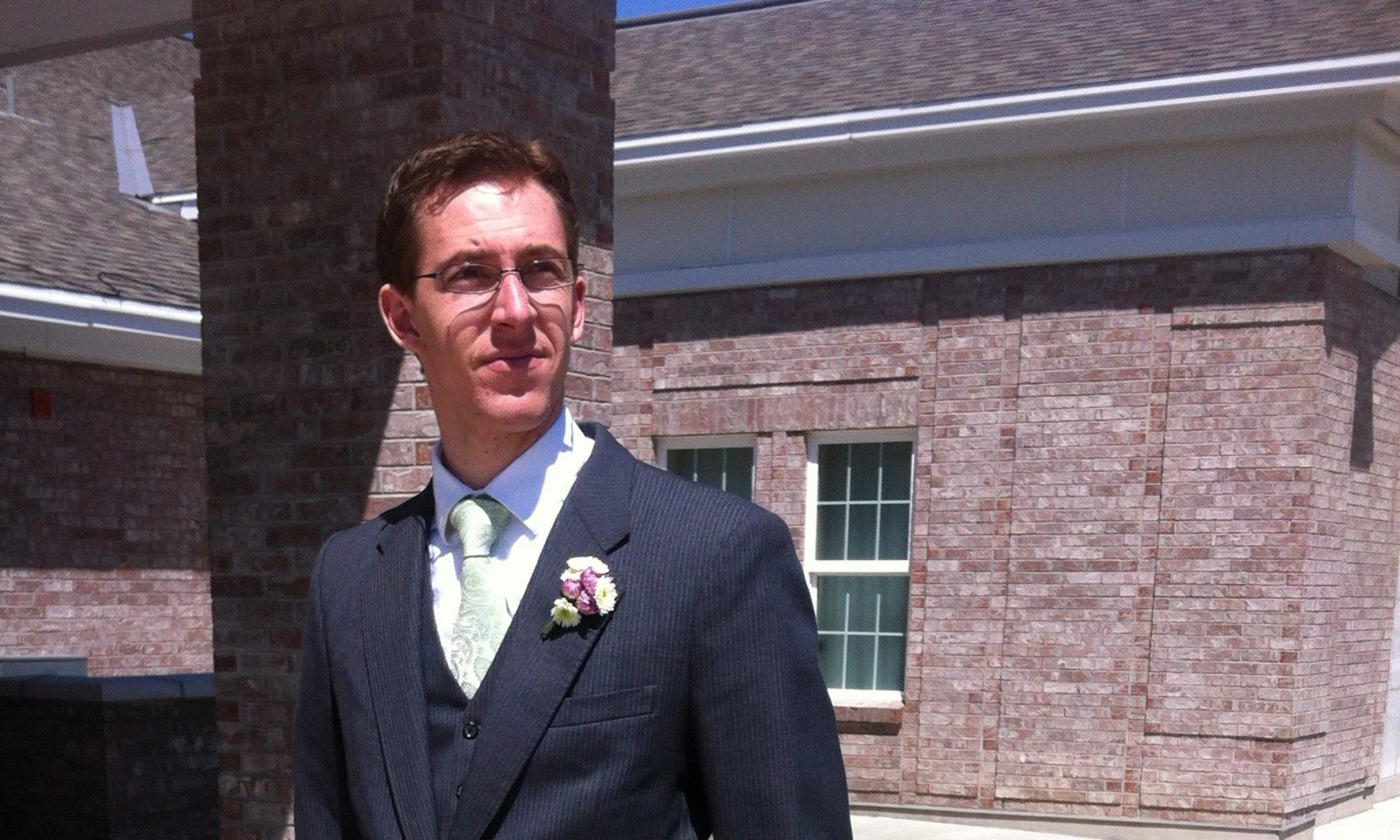The first covenant I made was a relatively public event.
I was baptized at age 8, on my birthday, in a ceremony where I was the lone person being baptized.
This is a bit odd within The Church of Jesus Christ of Latter-day Saints. Usually baptisms of youth and individuals happen with several others making the covenant at the same time.
It’s a pretty public “invite your friends and family and come even if you’re unrelated” type of event.
And I’m not sure it should be. By the time I made my next major covenants, I had a much different understanding of what I was actually doing.
A covenant is a promise between an individual and God. The individual knows the terms ahead of time, although it may take (more than) a lifetime to understand the entire implications of the promise he/she makes to God and the promises God makes in return.
It’s not that each side isn’t clearly spelled out in scripture and in modern revelation: they are. Quite clearly. But as an individual experiences and matures, they are more prepared to understand the depth of obligation they have to God and to understand the power of the blessings promised in return for obedience and dedication.
So when I consider covenants and the process of making them, I wonder whether the sacred import of making them is lost when too many people are invited to observe the amount of them.
I also think it may be worth noting an individual’s approach may change over time. And possibly in different directions.
When I received my endowment, attendees we’re by script invitation only (and if I’d had my way, I would have left out even my attending grandparents).
The endowment is unique enough that a person requires a guide of the same gender (usually father or mother or someone similarly impactful). Andi would pretty much leave invitees at that. (Guide plus other parent.)
There isn’t reason for me, in my opinion. The endowment actually entails several covenants and related promises and obligations, so there’s a lot that happens quickly.
That’s not to say I havent been invited to others’ covenant ceremonies.
I’ve been to every niece and nephew baptism Jordan and I have been invited to. These are as heavily attended as mine was (by each child’s family and extended). And despite my belief my attendance (and that of most others) is forgotten by the child, or there is too little focus on the baptism and too much on the family reunion type fun that happens before and after), I believe attending and maintaining a level of solemnity about the baptism itself is crucial.
This also isn’t to say I havent been to others’ endowment ceremonies. I have.
Wonderfully, I find those much easier to communicate the importance and deep solemnity to the recipient. Usually the fact that receiving a temple recommend is a much higher level of commitment, invited attendees usually understand the significance of the event.
There’s also a level at which viewing/observing another’s covenant-making is restorative and encouraging.
If I had my (introverted) way, I would have had only my parents and Jordan’s at our sealing (eternal marriage is a covenant as well). It’s a sacred enough event, that’s all I would have invited.
But Jordan has a bunch of siblings. And we both had some friends who had been as close as siblings. And we had some grand-parent-like friends we both wanted there.
So our wedding group was a bit bigger than only close family. I was grateful my extended brothers and sisters came. I hope it communicated how important I believed the ordinance was, as well as the deep impact they had in my life.
But unlike at my baptism, I knew several things:
- This was a time I should focus on the covenant and not n the celebration
- I would be able to experience the covenant over and over again (temples of The Church of Jesus Christ are specifically for extending ordinances and their associated covenants to every one of God’s children–everyone who ever lived; a just and loving God made a way so everyone could choose to return to him) as a proxy for many more people
So I knew to not be distracted. And I knew if I were distracted, I could come back and remember what I covenanted to do and become.
Conclusion:
It’s not a problem I’m going to a child’s baptism. My impact here is likely o be minimal (I’m only an uncle and husband to their favorite aunt–and I’ve been around for the shortest amount of time), but it’s important enough that we were invited, so it’s important for us to travel 12 hours to come and support them.
And I’ll do it every time.
Because receiving an ordinance and making a covenant should be celebrated.
Even if that celebration should be with incredible reverence that may sometimes be ignored.
Wedding cheers, I’m looking at you
